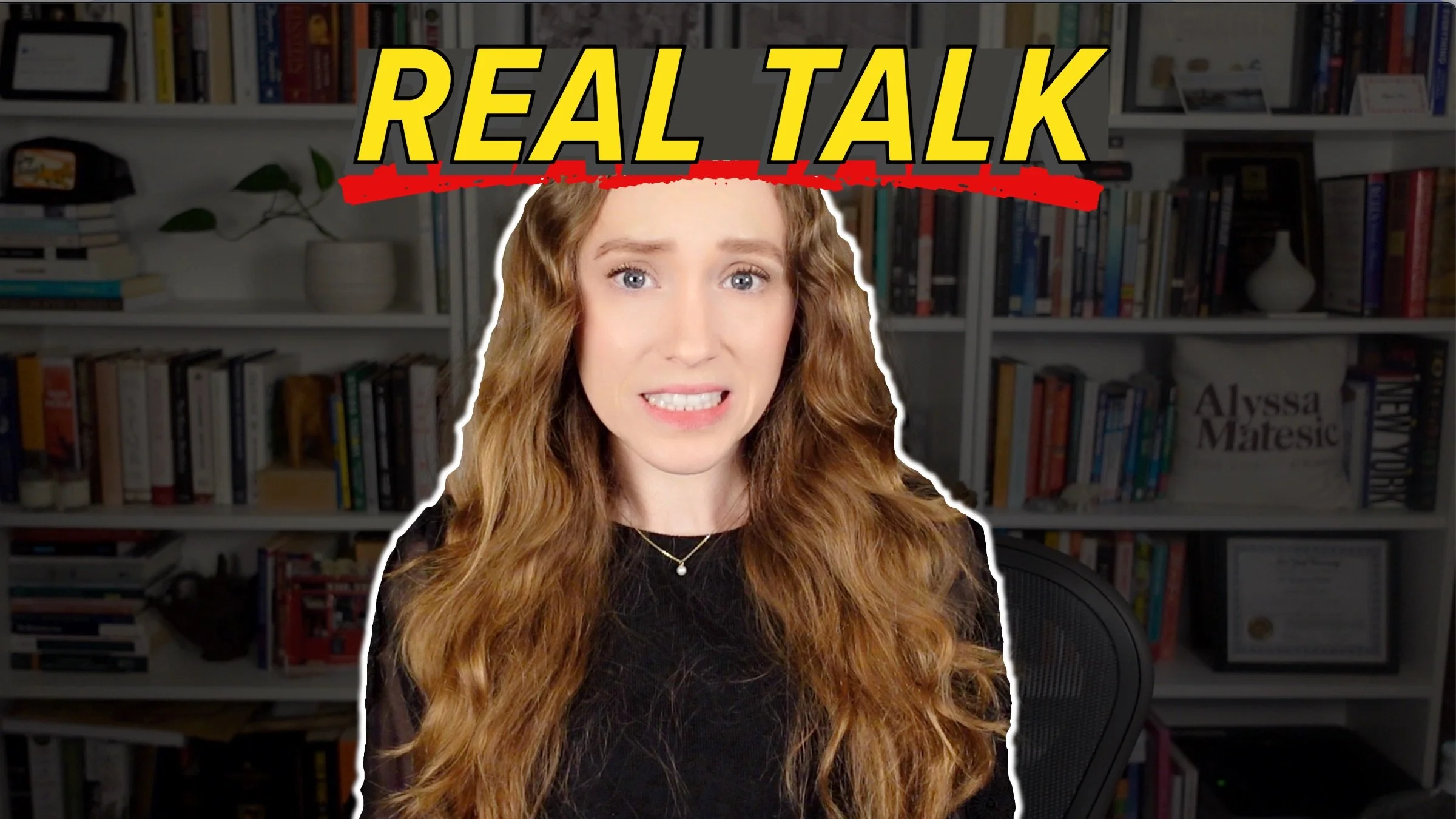You Got Low Book Sales. Now What?
HIT PLAY OR READ THE POST BELOW:
In this article, I want to address one of the biggest fears emerging authors have, which is: you’ve put in the blood, sweat, and tears to get your story published… but no one buys it. If you publish your book and then get low book sales, you might feel disheartened about your future as an author. You might be concerned that your publisher is going to drop you because you didn't reach their sales expectations.
These concerns are valid, although not necessarily the truth of what’s going to happen. In this article, I want to provide some specific tips for what you can do if your book has lower book sales than you expect. My intention here is to alleviate some of the pressure in terms of your book sales and help you feel more optimistic about the future of your writing career. These tips are intended to apply to both self-published authors and traditionally published authors.
Remember That Publishing Is Unpredictable
Something to keep in mind if your book doesn't sell as well as you'd hoped is that publishing is unpredictable. I know this doesn't necessarily alleviate the outcome, but it’s the truth about the industry, whether you self-published or traditionally published. If you have low book sales, oftentimes it doesn't mean that your book is bad or that you did anything wrong. In many cases, the quality of the book is not the issue–it's that the book hasn't found its readers for one reason or another.
Even executives at the Big Five publishers admit that publishing a book is highly unpredictable. There is no formula that can reliably tell you exactly what you can expect in terms of book sales. No one knows for certain what makes a book take off and become a hit. Sometimes publishers spend a ton of marketing dollars pushing a book, doing ads and publicity, and it still doesn't take off. Other times they spend little on marketing a book and it becomes a major bestseller.
Reader appetites are always changing, so it’s impossible to know for certain what's going to resonate with readers at any given moment. When your book is published, what I want you to realize is that a certain amount of the publishing process is in your control and some of it isn't. There is an inherent unpredictability to the process, and knowing that hopefully helps you feel a little bit better about your book sales if they are lower than expected.
What to Do About Low Book Sales
Here are some tactical things that you can do as an author if your book doesn’t have as many sales as you wanted.
Audit Your Marketing and Publicity Efforts
If you have low book sales, the first thing to do is audit your marketing and publicity efforts. Take a close, hard look at each individual effort you made to market and publicize your book and how it performed. Did you get reviews in media outlets? Did you have a social media campaign of some kind? Did you run ads? Did you do any author events or interviews? Also note what outcomes you can attribute to each of those efforts. Which ones worked and which ones didn't?
If you self-published, it's likely that these efforts were things you took on independently or outsourced to a marketing or publicity service. If you are traditionally published, then you had a marketing and publicity team put together a plan.
Once you've taken a look at what worked and what didn't, think about either leaning into one of the specific efforts that did help the book sales or try something totally new. The good news is that there are always new avenues for marketing and publicity that you can do at any time after a book is launched. For instance, you could continue working on building your online presence so that you can pitch your book on social media. Or you could consider hosting an event in your community. Indie bookstores often want to promote local authors. Remember: every sale counts!
Redo the Cover and Copy
Your book’s cover and description copy on its back, inside cover, and online page are all pieces of marketing collateral. Authors can get hung up on the design of the cover and want it to have a specific, artful impression. Some of you may have even started thinking up your cover even before the book was finished. But remember, at the end of the day, the cover needs to do its job, which is to attract a specific readership to your book and make them want to purchase it. Otherwise, the cover is not effective.
So if you have low book sales, see if it's possible to update or completely redesign your cover or revamp the copy that goes on the online description page of your book. A little-known secret is that traditional publishers do this all the time. That's why paperback editions of books often have a different cover than the hardcover, especially if the hardcover didn't sell as many copies as they wanted–they're trying something totally new for the paperback to see if that attracts more readers.paperback to see if that attracts more readers.
Traditional publishers also frequently update the online description copy for a book, especially if there's a new review that comes in. Little things like that can actually grab readers’ attention and make a difference in your book's sales. Remember that the cover and the copy are critical to convincing a reader to buy your book. Even if your story is amazing, if those two elements aren't grabbing them and drawing them in, it's unlikely they're going to buy your book and you may be missing out on readers because of them, so don't be afraid to redesign them if it is in your power to do so.
Engage With Current Readers
Even though your book didn't sell as many copies as you want, give attention and value to the readers that did come to you and did like your book. You want to nurture those relationships because even though your readership might be small right now, they are your day-one readers. Those readers are likely going to be the first ones to buy your next book, so make sure that you appreciate them even though you might be disappointed overall with your book launch.
Some ways to foster relationships with your readers would be to create a newsletter where you discuss your writing or discuss your next books in an exclusive setting. You could also host an event, either online or in person, or offer to appear virtually at book club sessions if there are book clubs across the country who choose your book. Word of mouth is quite powerful. If a small group of readers appreciates your book and your writing, they're likely going to recommend your book to friends, so it does help to engage them and nurture those relationships.
Write Your Next Book
Even though you got low book sales this time, that doesn't mean your next book won't be a hit. There are plenty of authors who don't break out until their third or fourth or even fifth book, so don't let the sales of this one book discourage you. Every new story is a new chance to engage readers and a new chance to tell another story that resonates with them.
Also, if you do publish your next book and a new reader enjoys it, they will likely look for other books you have published. This enhances the sales of your backlist, which is your previously published books. That's why it is so important to not let this one disappointment get you down. You are still a writer, your writing is still valid, and you still have infinite chances to engage readers!
I hope these tips helped you feel more optimistic about your writing career and power through some of those disappointments or doubts you might have if you experience low book sales.
Thanks so much for reading and happy writing!






